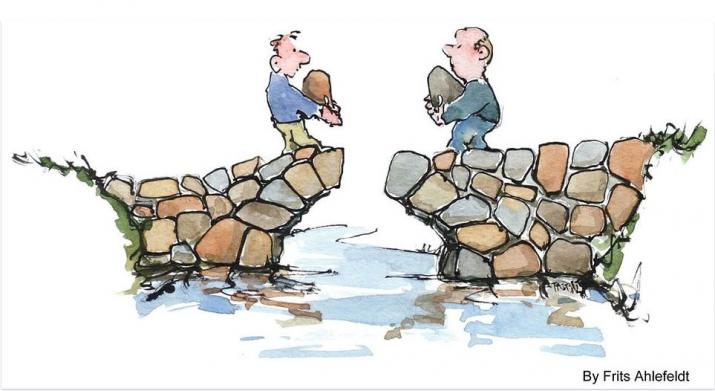
I am currently studying an MSc in Wildlife Biology & Conservation at Edinburgh-Napier University and was interested in expanding my skills in GIS as I have found it to be an invaluable tool in helping with organizing and analyzing data for my thesis work. I decided to attend the ialeUK Participatory GIS workshop after a classmate mentioned it to me, as both our thesis projects revolved around GIS. Before beginning my MSc, I had never used GIS, but quickly realized how useful it could be. As the discussion on PGIS and its uses developed, I came to realize that I had taken part in PGIS during an undergraduate project, and simply not realized it. The different ways it can be utilized is remarkable and it can open a whole new door into how data can be collected, especially if you have limited time and resources. Getting so many different perspectives on how PGIS is used as well as how the participatory part of the GIS can change depending on the situation and type of data or input required was an eye opening.
PGIS can be used for both scientific and non-scientific applications
The examples given throughout the workshop were well rounded. They included science-based examples (which would be expected) but also for human reasons, such as to build a sense of community. The example I really liked was a project based around trees in a neighbourhood, where by local residents could upload pictures of their favorite tree, where it was located and why it was important to them. A simple tool, but such a great way to help build community spirit too.
Asking locals is a way to get “insider” knowledge of an area
What better way to get insider knowledge of an area than to ask locals and get insight to a region that you may never know about or be able to acquire on your own. Such a seemingly simple twist on data collection, but one that I am sure is over looked in many cases.
PGIS Maps are not just lines on paper
The idea of creating maps that allowed participants to associate words to certain areas was a great practise to learn. Ordnance survey maps may be useful to capture places where people like to walk, but not so great for expressing how they feel about these places. Locals who know an area in terms of how they view it for resources or cultural significance would be able to create a very enlightening map of how they see their surroundings. It also allows you as a researcher to gain a deeper understanding of what an area means to people.
A nice group of people
Overall, I found this workshop to be incredibly useful and I feel as though they are useful tips and tricks to have for future work. I am very glad I had the opportunity to attend the workshop and feel grateful for all the other participants and the presenters for sharing their experiences and knowledge of this topic. Mentioned at the beginning of the workshop, ialeUK is a very inclusive and supportive organisation and after this workshop, I definitely agree with this sentiment and look forward to many more opportunities to work within this group.
minw768